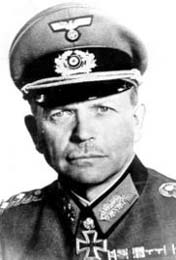an ace fighter pilot and commander of the Luftwaffe Fighter Arm from 1942-5; an employee of Lufthansa during the post-Versailles prohibition on aircraft building, transferred to the newly formed Luftwaffe in 1935 and served as a pilot in the Kondor Legion, which fought for the nationalists during the Spanish Civil War; flew over 300 sorties and developed close support tactics for the new Messerschmitt Bf109 monoplane fighter; during the Battle of Britain, became recognized as an outstanding fighter leader, scoring top points among German fighter pilots with 57 credits; in late 1941 succeeded his close friend Mölders in charge of Luftwaffe day fighter squadrons; in 1942 was promoted to Inspector General in command of all fighter aircraft; in spite of his distinguised combat record, popularity and technical innovations, oversaw the gradual failure of the Fighter Arm between 1942 and 1944; constantly overruled in his advocacy of greater use of defensive fighter forces by Luftwaffe chief Göring, and by Hitler, was finally made the scapegoat for the Luftwaffe's failures and removed from high command in January 1945; ended the war commanding a crack squadron of new Messerschmitt Me262 jet fighters, which fought on until grounded by lack of fuel.
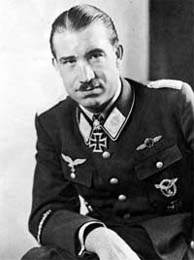
one among a number of 'old school', defense-minded military chiefs, whose rigid tactical doctrine proved poor equipment to combat the German Blitzkrieg in May 1940; had held a series of political posts since transferring from command of operations at French General Headquarters after World War I and was acting as Commander of Land Forces at the outbreak of the war; having pre-planned the static deployment of French forces and delegated responsibility to General Alphonse Georges, failed to intervene in the conduct of the battles in May and was replaced by General Maxime Weygand, too late to affect the outcome, on May 19; was subsequently among those tried at the Riom show trial and was later imprisoned in Germany at Buchenwald concentration camp until its liberation in May 1945 by American forces.
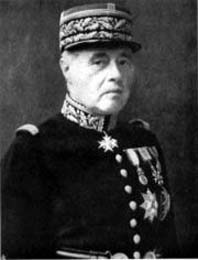
had first come to the throne in 1922, only to be deposed the following year, then recalled in 1935; in 1940, his popularity reached new heights as the Italians were drivein back into Albania; fled to London when Greece fell to the Germans; from there headed a government-in-exile and used radio broadcasts to urge unity on his turbulent former subjects; in March 1943, his cabinet transferred to Cairo; George Papandreou was brought out of Greece to become Prime Minister, and in May 1944 the warring factions of Greek underground politics assembled in reluctant and short-lived unity behind the Cairo administration; it was Papandreou who took uncertain control in Athens when the British returned to Greece in October, agreed to stay away pending a plebiscite; this was eventually held in 1946, and invited him to return.

shy and unassuming, ascendedn to the British throne when his elder brother, Edward VIII, abdicated in 1936; won the undivided affection of his people during the war by tirelessly visiting the armies in the field and, with his popular Queen Elizabeth and two daughters at his side, sharing with Londoners the ordeal of German air raids.
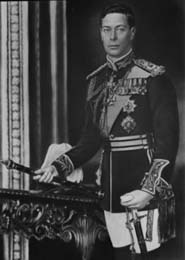
veteran French soldier, passed over as C-in-C of the French Army in 1935 and subsequently concerned with the overall review of its tactics; at the start of the war, was deputy commander of the Northeast Front (facing Germany) under General Gamelin; the reorganization of the Army gave him overall command of the Front from January 1940, but Gamelin retained direct control of planning and strategy, leaving Georges in charge of operations and liaison with other Allied forces; when the German Army attacke westward in May, concentrated on integrating Belgian forces into his defensive system; was slow to react to the German armored thrust through the Ardennes, and then failed to attempt a large-scale counterattack; on May 19, was relieved of operational command; played little part in Vichy affairs and joined de Gaulle and Giraud in 1943 as a member of the French Committee of National Liberation established at Algiers.

acting as a military observer in London at the outbreak of World War II, left his diplomatic posting in March 1942 to fight in the South Pacific, assuming command of the South Pacific Ocean Area after the Battle of the Java Sea; in the following month was sent to Auckland, New Zealand to organize the US naval forces under Admiral Nimitz; operations organized by him against the Solomon Islands (to safeguard communications with Australia) were more successful, despite the American forces' lace of experience, than the initial assaults by American Marines against Guadalcanal and Tulagi that saw some desperate fighting and were widely judged to have been poorly handled by Ghormley (though he himself had expressed doubts during the planning of the landings); as a result was replaced in October 1942 by Admiral William Halsey and returned to Washington to US Fleet C-in-C King's headquarters, where he was subsequently given command of the Hawaiian Sea Frontier defenses; after VE day, directed the disarmament and demobilization of the German Navy.
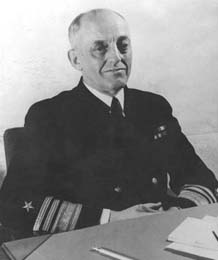
leader of the RAF Avro Lancaster force from 617 Squadron, received the Victoria Cross for his leadership of the Möhne dam raid and was killed when his plane crashed in the Netherlands, when returning from a raid on Rheydt on September 19, 1944.
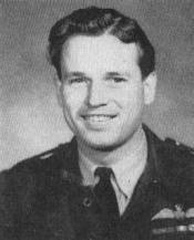
a successful British commander, had gained considerable experience in Africa and was Military Secretary of the War Office when war broke out; appointed GOC in Palenstine and Transjordan early in 1940 and then C-in-C of Western African forces in June, successfully trained and developed West African regiments and specialist units; as a result of his success, was sent by General Wavell to India in 1942 to command the Eastern Army; During 1943, his administrative expertise and experience in specialist tactics contributed to the preparations for the Allied recapture of Burma; was appointed to command the 11th Army Group undr Lord Louis Mountbatten's newly organized Southeast Asia Command (SEAC); dismissed from his post following clashes with Montgomery and US General Stilwell, commander of Chinese forces, was replaced by General Leese in November 1944.

Successor to Corap in command of the French 9th Army which was routed by the German armored formations in May 1940, was take prisoner but escaped German captivity in April 1942; seen by the Allies, and particularly by the US, as a more acceptable leader of French forces than de Gaulle, leader of Free France, was taken from Gibraltar to Algiers by British submarine in November, and appointed High Commissioner for French Africa and French Army C-in-C, following Darlan's assassination in Decempter; despite a brief attempt at co-operation as joint heads of the French Committee of National Liberation, de Gaulle's political maneuvering increasingly cost Giraud his American support; in August 1943 stepped down as High Commissioner, though he continued to work toward rebuilding the French military forces; in April 1944, his task largely completed, a final confrontation with de Gaulle resulted in his resignation as C-in-C.

chief propagandist of the Nazi Pary and Nazi Propaganda Minister from March 1933, developed and demonstrated a mastery of the techniques of mass communication which served as one of National Socialism's most characteristic weapons; a consummately skilled orator, used the new media of radio and sound cinema to advance and sustain the myths of National Socialism and began the world's first regular television service in March 1935; among so much intellectual mediocrity in the Nazi leadership, was bound to stand out; also created a Reich Chamber of Culture, with chambers and academies for every field of cultural activity, though most os its highly prescribed output was dull and sterile, a host of German intellectuals, writers, artists and actors having been lost to the wave of emigration from Nazi Germany; after 1939 his key importance waned; his broadcasting services directed against Germany's enemies never carried the conviction of the BBC; after the pivotal German defeat at Stalingrad, however, created a new role for himself by taking a stand for total war and calling for full support and devotion from Germans in a fight to the death; fully mobilized German manpower for the first time, as well as touring bombed cities, organizing relief convoys, gaining a new popularity and prominence within the party; his efforts, however, could not prevent Germany's ultimate military collapse; in April he and his family joined Hitler in the Führerbunker; the day following Hitler's suicide, poisoned his wife and children and shot himself.

a World War I ace; joined Adolf Hitler's National Socialist Party in 1922; was an original storm troop commander; name Prussian minister of the interior in 1933; organized the Gestapo and set up the first concentration camps; became aviation minister and then head of the German air force in 1935; also held the titles of Reichsmarshal and president of the Council of Defense; corpulent, drug addicted and dissolute, though popular with the German people, remained loyal to Hitler; at war's end, however, the Führer turned against him because he suspected him of trying to usurp his power; after the war was convicted on 4 counts of war crimes at the Allied tribunals in Nuremberg; as the senior surviving Nazi, swallowed potassium cyanide in 1946, a few hours before he was scheduled to be hanged.
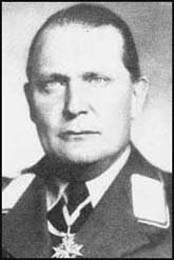
awarded the Victoria Cross for outstanding gallantry during World War I when in command of a battalion of Grenadier Guards, was promoted Chief of the Imperial General Staff (CIGS) in 1937 and went to France in command of the British Expeditionary Force in 1939; though unable to provide an imaginative challenge to the lightning advance of German forces, was prepared to take the decisions which led to the withdrawal to Dunkirk and the eventual escape of the BEF from there in May 1940; was replaced by Dill in the same month, and later served as Governor of Malta, where he was instrumental in defending the island against besieging Axis forces, and as High Commissioner in Palestine and Transjordan.
invasion.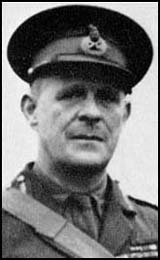
commanded the Soviet 5th Army outside Moscow in November 1941 and in the December counter-offensive against the invading Germans; directed the defense of Leningrad which was under German siege from 1941 to 1944.
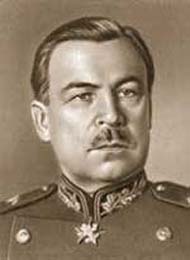
a soldier since the age of 16, was appointed C-in-C of Italian forces in Libya in 1940, after serving as Governor of Libya, Viceroy of Ethiopia and Army Chief of Staff in the 1930s; reluctantly pressed into commanding the invasion of egypt by Mussolini, advanced with extreme caution and was replaced in February 1941, after defeats by the British in Cyrenaica; came out of retirement in September 1943 to serve Mussolinie briefly as Defense Minister; in 1945 was captured by partisans and tried for treason; sentenced to 19 years in prison, received amnesty in 1950 and spent his last years in Italian right-wing politicals.
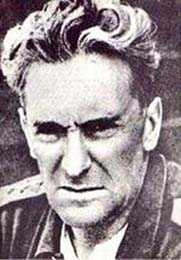
American ambassador to Japan from 1932 until the attack on Pearl Harbor in December 1941; had previously been posted to Mexico City, Cairo, St. Petersburg and Berlin; a knowledgeable and intelligent observer of Japanese politics, government and culture and was generally sympathetic and conciliatory in his relations with Japan; did support the freezing of Japanese assets as a valuable show of force and was among the first to warn of the possibility of a pre-emptive strike on American territory by the Japanese Fleet; after the attack on Pearl Harbor, was confined in the Japanese capital for several months before being allowed to return to the United States in exchange for the release of Japanese diplomats; subsequently became adviser to the State Department on Japanese affairs and Under Secretary of State in 1944.

was a pioneer of armored tactics and a master of strategy; build the German army's panzer force in the face of opposition from the general staff and created blitzkrieg warfare; personally led the XIX Panzer Corps into Poland in 1939 and into France in May 1940; commanded the 2nd Panzer Group in the June 1941 invasion of the Soviet Union; dismissed by Hitler and then made inspector general of panzer troops; became army chief of staff; was dismissed after a blazing row with the Führer in March 1945.
